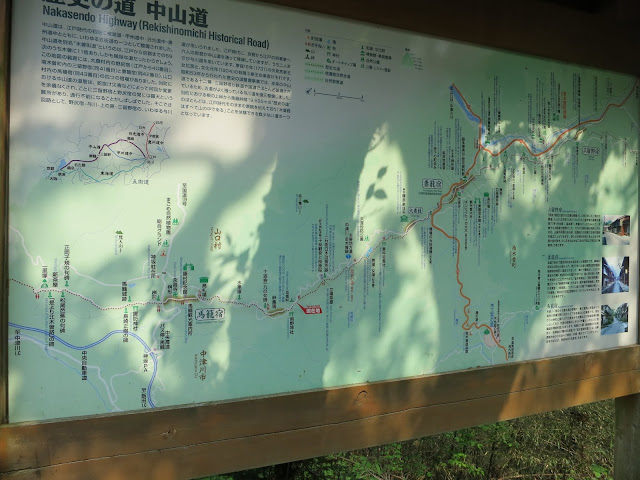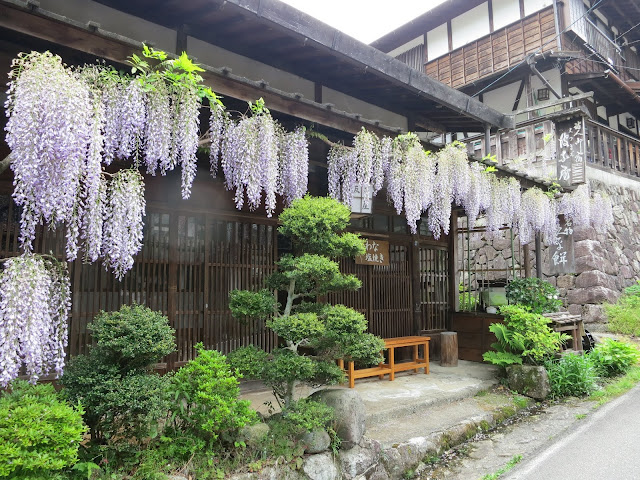Kiso Valley is located in Japan’s Central Alps,
near Nagano. The old Nakesendo Highway, one of the two primary roads
between Kyoto and Tokyo during the Edo period, snakes through it. The
Nakesendo used to be dotted with post towns which
offered respite for weary travelers. Only several of these towns still
remain in much of their original state. We were able to visit and walk
between two of them, Magome and Tsumago.
Here's Magome.
Both towns looked like they were lifted straight
out of a movie set. They were functional towns in the sense that many
of the folks who ran the minshukus, food establishments and souvenir
shops still lived in these buildings.
Most tourists will visit these towns as a day
trip. We chose to spend a night at a minshuku in Magome, which was
basically a Japanese style bed and breakfast.
Here’s a video tour of Inn Tajimaya.
Most minshukus and ryokans in Japan include a dinner and a breakfast. Here’s our dinner.
Breakfast.
Magome was especially beautiful in the evening, after all the tourists have left.
The one above is a picture of our minshuku, Inn Tajimaya.
That water wheel actually generates electricity.
Our minshuku at night.
The next day, we hiked 7.7 km on the Nakesendo Highway to Tsumago.
There were several bear bell stands along the way.
Tsumago was also quite charming.
This was the actual mailman!
These were the bathrooms next to the bus stop.
After Tsumago, we spent a few days in the modern city of
Kanazawa before returning back to the Edo period. Ogimachi is a mountain
village located in Shirakawa-go that is famous for its traditional
gassho-zhukuri farmhouses. Meaning “constructed like
hands in prayer”, the distinctive thatched roofs are designed to
withstand the heavy winter snow.
What the inside of one of these roofs look like.
The roofs have to be repaired regularly.
We also stayed a night here at one of the minshukus. Ours was called Iccha, or “One Tea”. This is it.
Dinner was delicious.
That is Hida beef slathered in miso, grilled on a clay pot.
Breakfast.
The dining room.
Minshukus and ryokans will provide yakutas for you to wear. Here’s my mom and me in ours.
From the guest book.
There’s a nice observation point from where you’re able to see the entire village below.






































































No comments:
Post a Comment